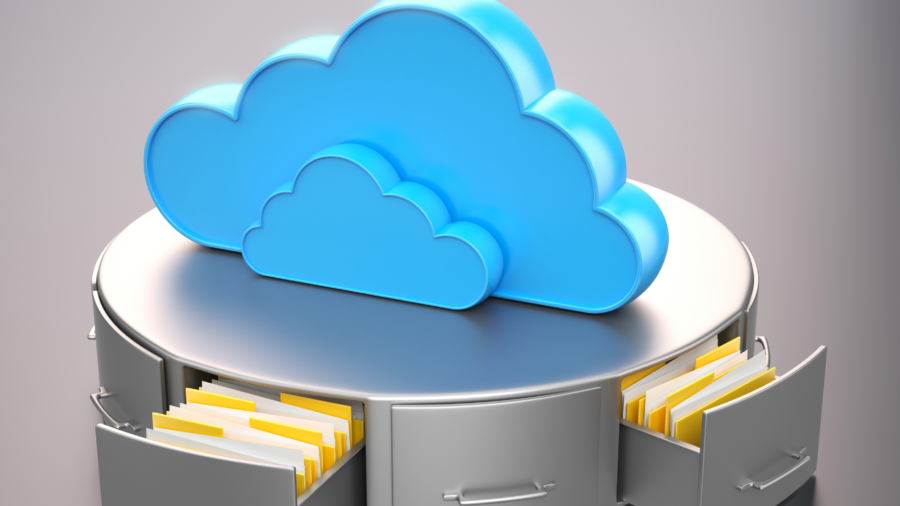On December 2, cloud services and hosting provider, Rackspace Technology issued a notice that it was investigating reports of connectivity issues to their Hosted Exchange environment. By December 6, the organisation announced that the suspicious activity that took its Hosted Exchange email server business offline was the result of a ransomware attack.
Details surrounding the breach are still sketchy, as Rackspace is yet to ascertain whether any other company data was affected. However, the organisation have pledged to notify customers if this proves to be the case. As of today, thousands of customers are still unable to access emails sent and received prior to 6th December and no timeline has been announced for the restoration of Exchange services.
As highlighted in our article on the Uber hack, cyberattacks are on the rise. Unfortunately, even when the best practices are followed, no one can guarantee complete protection. Businesses must take additional steps, particularly ensuring that important files are backed up to prevent data loss in the event of a breach.
How Important are Backups?
The importance of backing up data cannot be overemphasised. The repercussions of not having backups can be grave for businesses. According to a study by the British Chambers, 93 percent of businesses that suffer data loss for more than 10 days file for bankruptcy within a year, and 50 percent file for bankruptcy immediately.
This security breach has caused Rackspace significant short term reputational damage and only time will tell if it negatively affects the organisation’s bottom line. However, this is the least of the challenges that they may face as the situation continues to unfold. Legal firm, Cole & Van Note recently announced the filing of Rackspace ransomware/data breach class action. In addition to monetary damages, the suit demands Rackspace Technology implement and maintain sufficient security protocols going forward to prevent future attacks.
5 Reasons Why Businesses Should Prioritise Backups
Having backups cannot be optional, it must be a priority for every business. Here are 5 reasons why your organisation should prioritise backups:
Data loss prevention: The most important reason for having backups is to prevent data loss. Data can be lost to errors, theft, crashes, malware, physical damage, natural disaster, hard drive failures, system crashes, etc. Having a backup ensures that your business has a plan B in the event of data loss.
Audit and archives: Organisations are often required to keep business records for an extended period either for regulatory or audit purposes. Backups allow businesses to recover data, as needed.
Annual reporting: Data is the soul of every business. Smart business decisions are taken off the back of data-driven insights. Backups gives businesses a point of reference to draw comparisons and produce data-driven reports.
Business continuity: Data backup is a part of business continuity. With no data, most businesses are completely lost.
Reduce downtime: According to backup software provider, Acronis, 42% of businesses have experienced a data loss resulting in downtime. When businesses experience downtime, there must be an immediate action to remediate it. Having a backup reduces the time wasted attempting to retrieve lost data.
Do Businesses Need Multiple Backups?
Businesses cannot be too careful when it comes to the safety of their data. Whether it is a database with sensitive information or the files that make up a website, having backups avoids excessive downtime, and data loss. But what happens when your backup is destroyed?
Backing up your data is a vital part of your disaster recovery strategy. What’s often overlooked, however, is the importance of having multiple backups. Organisations must understand that relying on a single source of backup can spell disaster if anything happens to it. Making extra copies act as another fail proof measure if things go awry.
Mistakes to Avoid with Multiple Backups
The assumption that setting up backup alone without consistent monitoring is enough cannot be farther from reality. No backup software is perfect. There is always the risk that your software may go awry, therefore, certain provisions must be in place. According to Acronis, while 91% of individuals back up data and devices, 68% still lose data as a result of accidental deletion, an out-of-date backup, hardware, or software failure. In the protection your data, here are mistakes that must be avoided:
Inconsistent monitoring
Completely trusting the efficiency of technology without doing due diligence is a grave mistake that may have catastrophic consequences. It is good practice to monitor your backups at least once a day to verify if the previous day’s backup was completed.
Not creating alerts
Creating an alert for failed backups is crucial in case something goes wrong. An alert should not be substituted for monitoring as it may catch something that you hadn’t previously detected while monitoring. Whenever there is an alert, there must be an immediate response to stem any issues to stem any possible issues that may arise.
Our Unique Approach
At Tivarri, we understand that data drives the day-to-day of every business and losing access to valuable information can spell catastrophic effects, including financial and reputational loss. Our managed backup service is designed to use the best technologies to replicate your data, store it effectively and provide copies of valuable data if something happens to the original.
We offer snapshots at 3 intervals daily – 10am, 2pm and 5pm. This offers our clients the opportunity to retrieve unsaved or deleted copies within the listed timeframe. We also offer daily backup at 8:00pm. Additionally, we take system snapshots every 15 minutes.
An essential component of cybersecurity is data encryption at rest and in transit. Tivarri understand that both stored data and data in transit can be an easy target for potential hackers. We ensure that data is encrypted in transport and at rest using https and AES 256-bit encryption respectively.
Disaster Recovery Service
Our data recovery service is designed to protect our clients from the effects of a natural or human-induced disaster, such as a tornado or cyberattack. Tivarri offers data mirroring across 2 or more datacentres. We keep backups within the primary datacentre to allow for fast restore of files and volumes and another copy encrypted in our second datacentre in an AES 256-bit encrypted format.
Tivarri offers options to our clients – the minimum retention period is 30 days, although, many customers opt to keep it for at least 90 days or longer.
Contact us at [email protected] to learn more.


